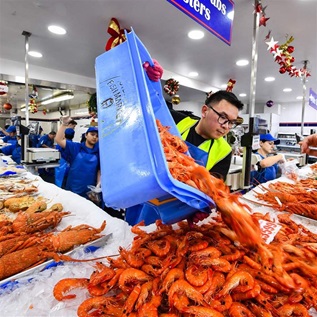Shark Alliance Applauds Tentative Adoption of International Trade Safeguards for Porbeagle Sharks at CITES
Parties fail to accept proposals to list threatened hammerhead, oceanic whitetip and spiny dogfish sharks under the CITES Appendices
Doha, Qatar: The Shark Alliance welcomes Committee approval of a proposal to list the porbeagle shark under the Convention for the International Trade in Endangered Species (CITES) made today during a day-long debate on sharks. The proposal to add the species to CITES Appendix II was offered by the European Union and co-sponsored by the Pacific island nation of Palau.
“We congratulate the European Union for its tenacity and extraordinary efforts to ensure that international trade in the exceptionally vulnerable porbeagle shark is held to sustainable levels,” said Heike Zidowitz, President of Europe’s leading association of shark scientists and the head of the Shark Alliance delegation to the CITES meeting.
Parties voted on three other proposals aimed at listing spiny dogfish, oceanic whitetip sharks, and three species of hammerheads under Appendix II, but all failed to achieve the required two-thirds majority.
“While we herald the porbeagle decision, we are deeply dismayed that the other vulnerable and heavily traded shark species have been denied the global safeguards that are so urgently needed,” added Zidowitz.
The porbeagle proposal received 67% of the votes, with 86 Parties in support, 42 opposed, and 8 abstentions.
According to the International Union for Conservation of Nature (IUCN), all the shark species proposed for listing are classified as Globally Threatened under the IUCN Red List and meet the criteria for listing under CITES Appendix II.
Appendix II listings result in requirements for export permits and determinations that trade in a species is legal and not detrimental to the species’ survival.
The Conference of the Parties to CITES continues through Thursday this week. Committee decisions can be revisited in final Plenary discussions over the coming days.
Notes to editor
The Shark Alliance is a coalition of 85 conservation, scientific and recreational organisations dedicated to restoring and conserving shark populations by improving shark conservation policies.
The Shark Alliance was initiated and is coordinated by the Pew Environment Group, the conservation arm of The Pew Charitable Trusts, a non-government organisation that is working to end overfishing in the world's oceans.
For the International Union of Conservation’s definitions of the terms Endangered and Vulnerable, http://www.iucnredlist.org/











